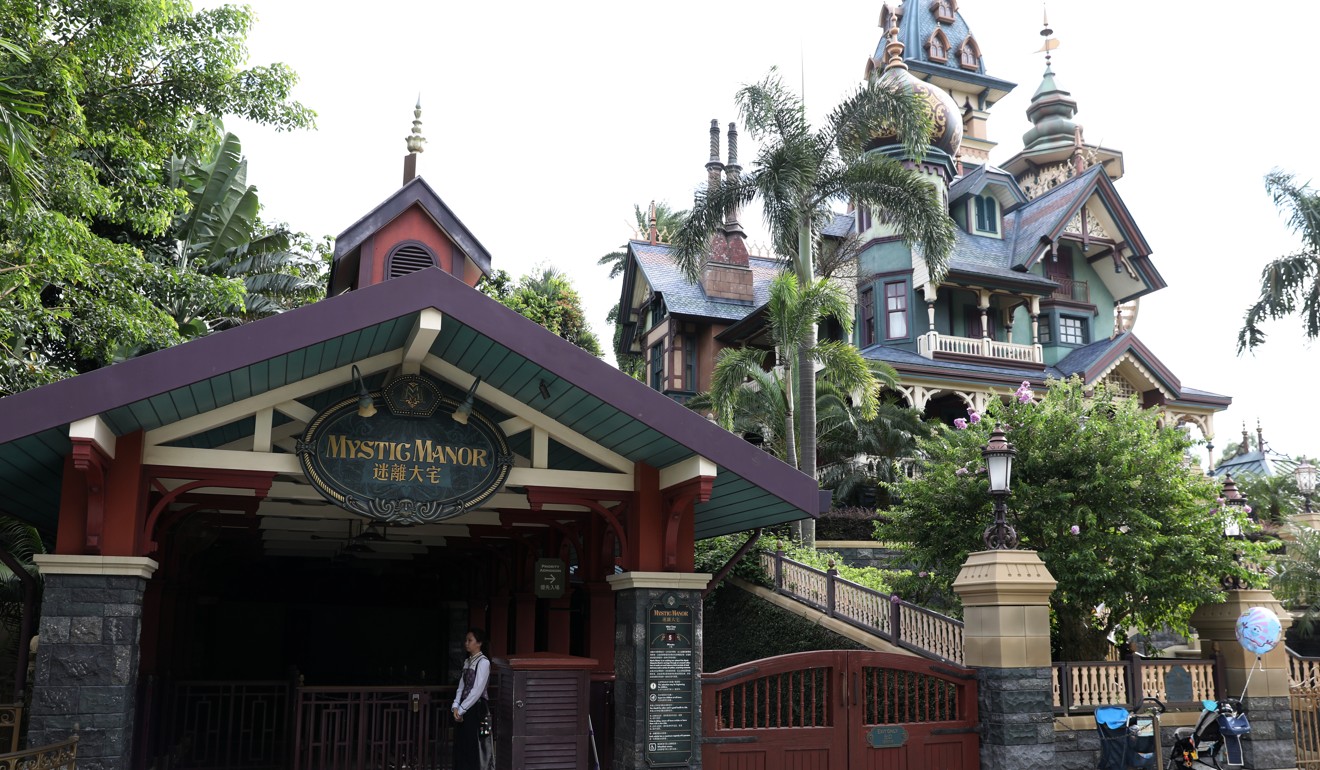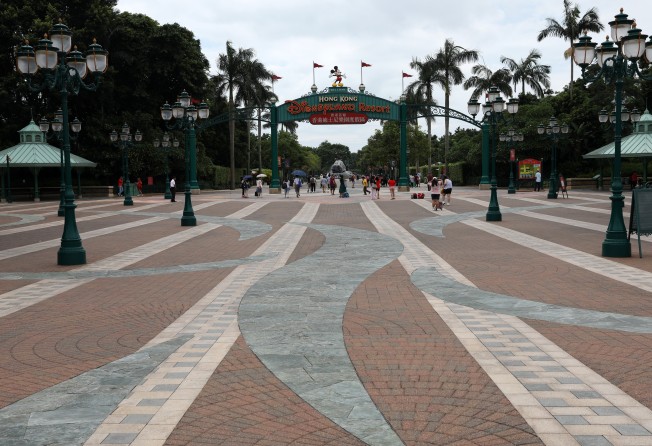
Hong Kong protests could end up costing Disneyland US$135 million in lost income for final six months of the year
- Loss-making theme park says it lost US$55 million between July and September, and predicts US$80 million shortfall in final quarter
- Walt Disney issues warning for coming financial year and expects US$275 million drop in income

Anti-government protesters have taken the sparkle off Hong Kong’s magic kingdom, with the city’s Disneyland Resort estimating the civil unrest will have cost it US$135 million (HK$1.05 billion) in income by the end of the year.
And the loss-making theme park’s United States-based parent company has warned of a significant full-year drop in income in 2020.
On Friday, Walt Disney revealed income for Hong Kong Disneyland Resort on Lantau Island shrank by US$55 million year on year between July and September, and expected the income would decline by another US$80 million between October and December.
For the financial year ending September next year the income would be US$275 million lower, it warned.

“The circumstances in Hong Kong have led to a significant decrease in tourism from mainland China and other parts of Asia,” Walt Disney chief financial officer Christine McCarthy said.
The Hong Kong government has a 53 per cent controlling stake in the theme park, with Walt Disney owning the remaining 47 per cent through a joint venture.
The city’s tourism has slumped since July, after protests sparked by the now-withdrawn extradition bill, that would have allowed criminal fugitives to be transferred to jurisdictions the city did not have an agreement with, including the mainland.
Protests take place every weekend, and although most start peacefully, they often descend into chaos and violence, with protesters trashing metro stations, blocking traffic, and vandalising shops, restaurants and banks with mainland connections.
Shopping districts such as Causeway Bay, Admiralty, Wan Chai, Tsim Sha Tsui and Mong Kok and key transport hubs, including the city’s international airport, have become battlegrounds between protesters and police, with clashes that invariable end with tear gas and water cannons being deployed.
The chaos has wrecked havoc on tourist arrivals, which dropped 4.8 per cent in July, 39.1 per cent in August, and 34.2 per cent in September, from the same period last year. In the first 15 days of October, the drop was 50 per cent.
Mainland residents account for the city’s largest group of visitors, at nearly 80 per cent, and there were 42.3 per cent fewer of them visiting the city in August, and 35 per cent fewer in September.
Those figures added to the woes of a resort that lost money for four consecutive years, although the loss narrowed to HK$54 million in the financial year ended September 2018, from HK$345 million the year before.
Attendance at the resort was partly hurt by reduced and disrupted rail services. Of the visitors to the park last year, 40 per cent were locals, 34 per cent mainlanders and the rest from other markets.
Tourism sector lawmaker Yiu Si-wing said Disneyland was among the victims of the downturn in the industry, and called on Disney to cut or even waive the royalty fees it required from the Hong Kong resort annually, which are equivalent to between 5 per cent and 10 per cent of its revenue, as well as management fees, which are equal to up to 8 per cent of the resort’s annual earnings before interest, tax, depreciation and amortisation.
“The parent company should ease the burden on the resort to avoid it laying off staff or temporarily cutting salaries,” he said.
“I hope they will remember their social mission of creating jobs and value for the economy as mapped out 14 years ago when the resort was brought to the city.”
A spokeswoman for Hong Kong Disneyland said the company had launched seasonal offers on tickets, hotels and meals to attract visitors, and additional deals would be available for annual shopping events such as Double 11 and Black Friday.
The spokeswoman did not respond to the Post’s questions about potential lay-offs and salary cuts.
The theme park is in the process of a six-year HK$10.9 billion expansion plan.
A Tourism Commission spokeswoman said the resort would cut costs and boost income by rolling out offers for locals and other markets while new features would be rolled out starting next year.
“The government attaches great importance to the business performance of Hong Kong Disneyland Resort, and will continue to monitor the management company in operating the resort and implementing the expansion and development plan,” she said.
Double 11 is organised by Taobao, an online platform of Alibaba, which owns the Post.